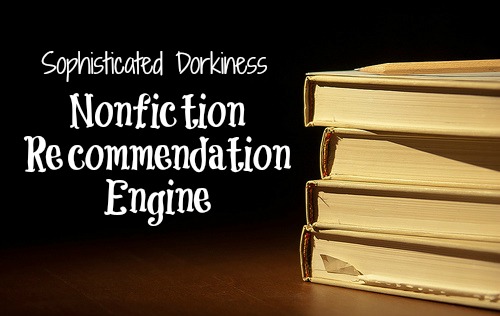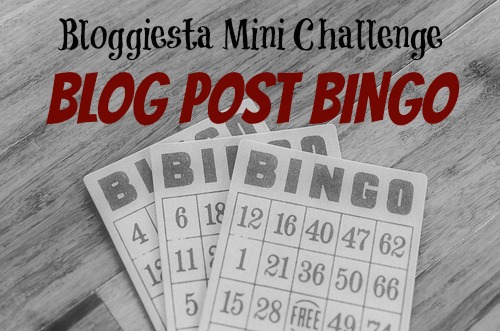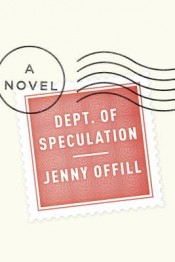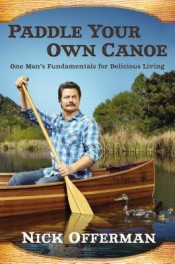March has been a strange month. I’ve been feeling rather discombobulated for the last few weeks, which has made it difficult to read or, to be honest, focus on getting blog posts up and written. I’m not sure how that is all going to play out for April, but I’m optimistic.
Overall, March was a decent month of reading. I finished seven books, including one audio book:
- Hicklin, Nathaniel: The Adventures of Israel St. James (YA fiction)
- Offill, Jenny: Dept. of Speculation (fiction)
- Ghattas, Kim: The Secretary (nonfiction)
- Oyeyemi, Helen: Boy, Snow, Bird (fiction)
- Offerman, Nick: Paddle Your Own Canoe (memoir/audio book)
- Clarke, Caroline: Postcards from Cookie (memoir)
- Thompson, Anne: The $11 Billion Year (nonfiction)
That puts me at 23 books for the year — just slightly off my goal to read 100 books, if the Goodreads challenge numbers can be trusted. The one thing I am a little concerned about as I look ahead to April is that I finished my last book more than a week ago and haven’t really been able to find my reading groove since. I’m not sure what is up, but I’m hoping things turn a bit going into this month.
This month I also brought back the Nonfiction Recommendation Engine (Part III and Part IV), shared 12 excellent memoirs by authors of color, and mused about the paradox of choice.
A Look to April
Because I’ve been so scattered for the last week or so, I haven’t really thought ahead to April much at all. But there are a few books on my radar:
- A book for One Little Word: A reread of Getting Things Done by David Allen (a repeat from both February and March, if you can believe that)
- A May 2014 release for Bloggers Recommend: I don’t have nearly as many May releases sitting on my shelves as I thought I did. The two I’m most excited about are The Tale of Dueling Neurosurgeons by Sam Kean (May 6 from Little Brown) and An Untamed State by Roxane Gay (May 6 from Black Cat).
- An April 2014 release: There are three April releases I’m really looking forward to reading, The Remedy by Thomas Goetz (April 3 from Gotham), Essentialism by Greg McKeown (April 15 from Crown Business) and The Humor Code by Pete McGraw and Joel Warner (April 1 from Simon & Schuster).
- A book I’ve been saving: At the beginning of March, I got excited to read Blonde by Joyce Carol Oates. When the book arrived in the mail, I decided that I would save it as my plane read when I travel this month. I’ll the lugging that chunkster with me to Los Angeles!
As usual, I have no idea how realistic this little reading list is, but I’m excited to see what I can get to and what other books start shouting for my attention. Dewey’s 24 Hour Readathon on April 26 will surely help me make a dent in my book piles. April is going to be a great month — spring is almost here!




 Jenny Offill’s heroine, referred to in these pages as simply “the wife,” once exchanged love letters with her husband postmarked
Jenny Offill’s heroine, referred to in these pages as simply “the wife,” once exchanged love letters with her husband postmarked  Growing a perfect moustache, grilling red meat, wooing a woman — who better to deliver this tutelage than the always charming, always manly Nick Offerman, best known as Parks and Recreation’s Ron Swanson? Combining his trademark comic voice and very real expertise in woodworking — he runs his own woodshop —
Growing a perfect moustache, grilling red meat, wooing a woman — who better to deliver this tutelage than the always charming, always manly Nick Offerman, best known as Parks and Recreation’s Ron Swanson? Combining his trademark comic voice and very real expertise in woodworking — he runs his own woodshop —